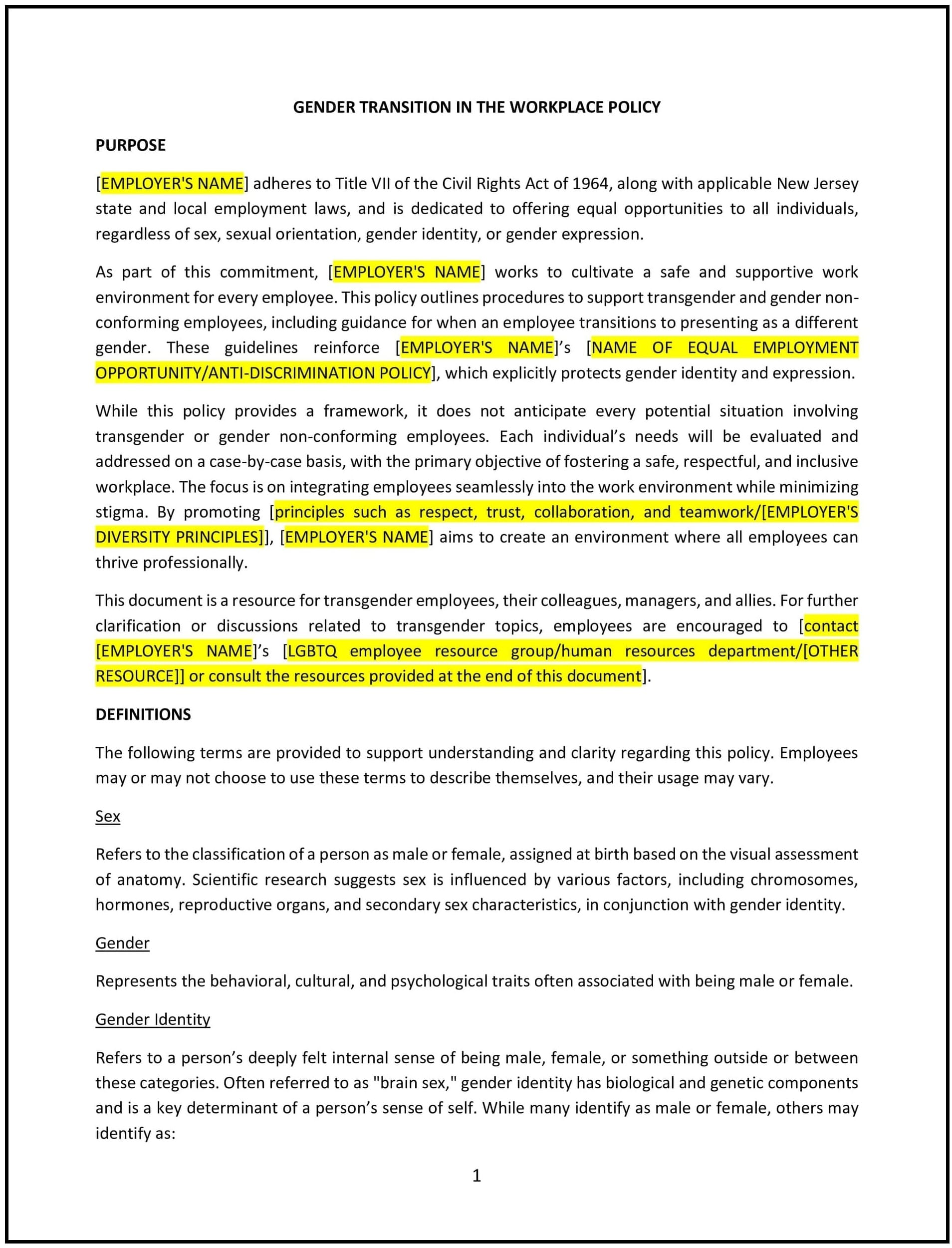Gender transition in the workplace policy (New Jersey): Free template
Got contracts to review? While you're here for policies, let Cobrief make contract review effortless—start your free review now.

Customize this template for free
Gender transition in the workplace policy (New Jersey)
A gender transition in the workplace policy helps New Jersey businesses create a supportive and respectful environment for employees undergoing or who have completed a gender transition. This policy outlines workplace expectations, privacy considerations, and guidelines for name and pronoun changes. It also sets expectations for respectful communication, restroom and facility use, and support resources.
By adopting this policy, businesses in New Jersey can promote workplace inclusivity, protect employee dignity, and foster a culture of respect and understanding.
How to use this gender transition in the workplace policy (New Jersey)
- Define gender transition support: Establish the business’s commitment to creating a respectful and inclusive workplace for transgender and nonbinary employees.
- Outline confidentiality and privacy: Require that all discussions, documentation, and personal information regarding an employee’s gender transition be handled discreetly and shared only with necessary parties.
- Provide name and pronoun change guidelines: Outline how employees can update their name, pronouns, and gender markers in company records, email systems, and identification badges.
- Set expectations for respectful communication: Require all employees to use an individual’s correct name and pronouns in workplace interactions.
- Address restroom and facility access: Allow employees to use restrooms and facilities that align with their gender identity and provide gender-neutral options where possible.
- Offer workplace training and education: Provide training for employees and managers on gender identity, transition-related topics, and inclusive workplace practices.
- Encourage open dialogue: Support employees in asking questions and learning about gender diversity in a respectful and professional manner.
- Review and update: Regularly assess the policy to align with evolving workplace inclusivity practices and New Jersey laws.
Benefits of using this gender transition in the workplace policy (New Jersey)
This policy provides several benefits for New Jersey businesses:
- Promotes workplace inclusivity: Establishes a supportive environment for transgender and nonbinary employees.
- Improves employee well-being: Fosters a sense of belonging and psychological safety.
- Reduces workplace discrimination: Sets clear expectations for respectful communication and behavior.
- Strengthens company reputation: Demonstrates a commitment to diversity, equity, and inclusion.
- Provides clear transition guidelines: Helps employees and managers navigate gender transition processes smoothly.
Tips for using this gender transition in the workplace policy (New Jersey)
- Communicate the policy clearly: Ensure employees and managers understand expectations for supporting gender transitions.
- Train managers and HR staff: Provide education on gender diversity and inclusive workplace practices.
- Offer employee support resources: Connect transitioning employees with internal and external resources, such as employee assistance programs or advocacy organizations.
- Respect employee privacy: Keep all transition-related information confidential and share only when necessary.
- Review the policy regularly: Update the policy based on employee feedback, best practices, and New Jersey-specific workplace regulations.